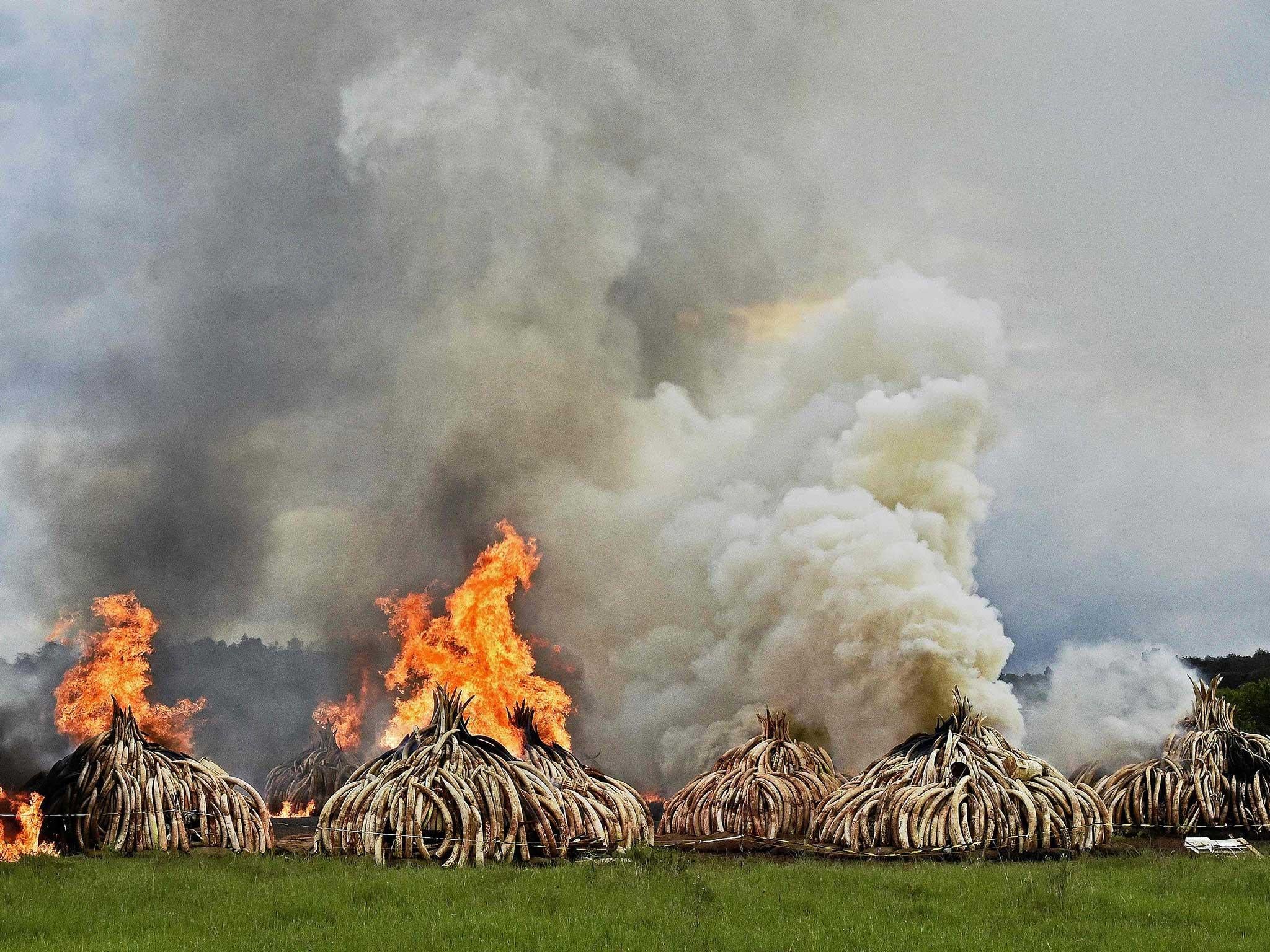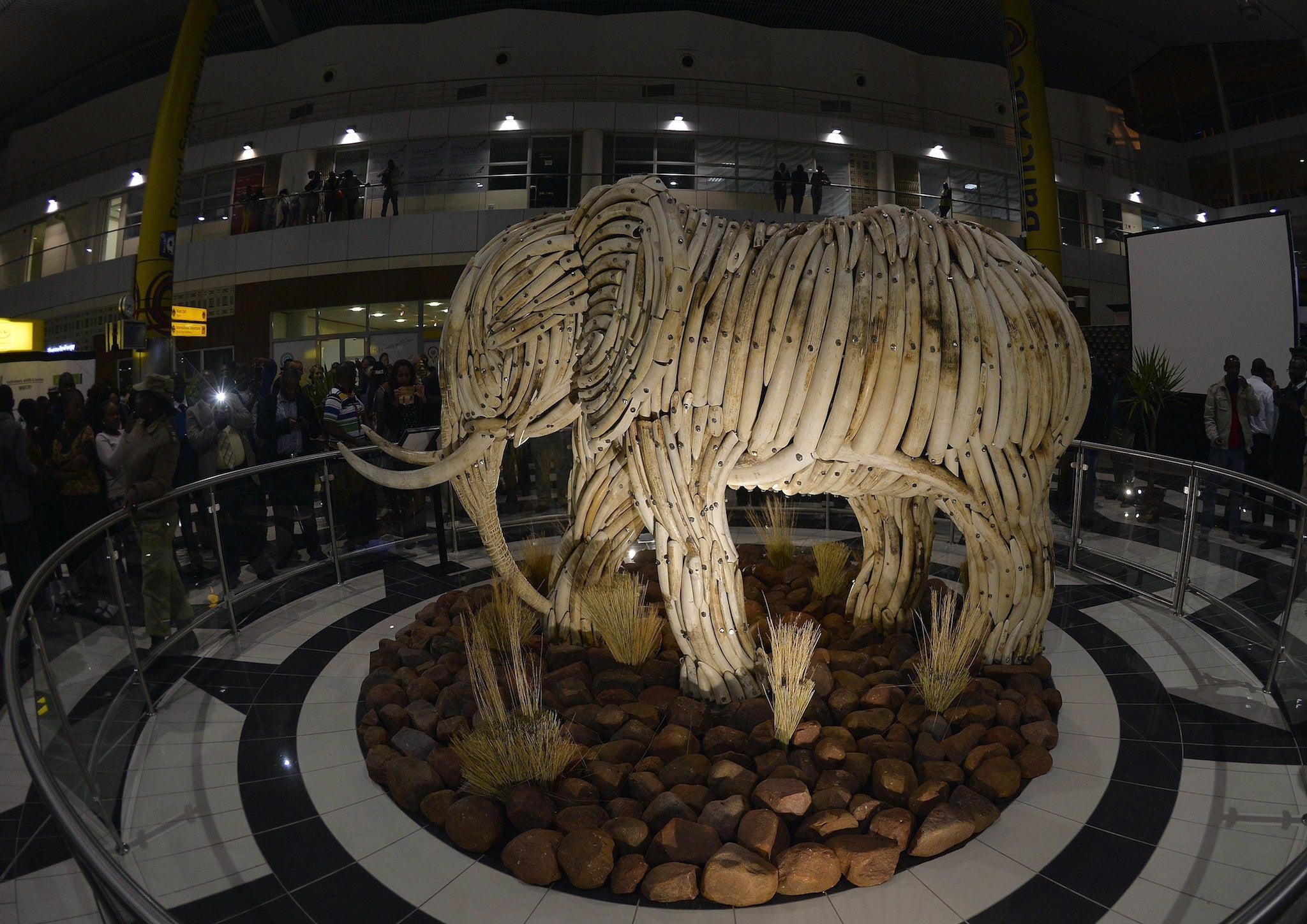World powers to decide fate of African elephant as global ban on ivory expires
Some African countries want to sell off their huge ivory stockpiles and say their elephant populations are thriving. But charities and experts say any sale puts a value on all tusks – and that puts animals at risk from poaching

Your support helps us to tell the story
From reproductive rights to climate change to Big Tech, The Independent is on the ground when the story is developing. Whether it's investigating the financials of Elon Musk's pro-Trump PAC or producing our latest documentary, 'The A Word', which shines a light on the American women fighting for reproductive rights, we know how important it is to parse out the facts from the messaging.
At such a critical moment in US history, we need reporters on the ground. Your donation allows us to keep sending journalists to speak to both sides of the story.
The Independent is trusted by Americans across the entire political spectrum. And unlike many other quality news outlets, we choose not to lock Americans out of our reporting and analysis with paywalls. We believe quality journalism should be available to everyone, paid for by those who can afford it.
Your support makes all the difference.On Saturday, the international community will meet in South Africa to decide the future of elephant conservation, with an international ban on sales of ivory poised to expire next year.
There are some who argue that, like the war on drugs, the war on poaching has failed. A block of southern African countries, where elephant populations are currently thriving, argue that ending the blanket ban would allow them to put the money raised into conservation.
Elephant poaching remains a thriving industry, with one animal slaughtered for its tusks every 15 minutes, and the crisis has only worsened in recent years despite a ban on trade that has been in place since 1989.
It is the opinion of the governments of Zimbabwe, Namibia and now South Africa that the ban has been an expensive and ultimately unsuccessful experiment in trying to end poaching.
They are of the view that a ban is not necessarily the best option for every country, and will argue that they have a right to sell off their national stockpiles when the Convention on International Trade in Endangered Species of Wild Fauna and Flora (Cites) meets for its 17th annual summit in Johannesburg on Saturday.
The EU has yet to come out in favour of a blanket ban, and may play a pivotal role in which way the vote goes.
Yet the southern African proposal is fiercely opposed by some individual western powers such as the US and UK.
Speaking to The Independent, Paul Gathitu of the Kenya Wildlife Service said there was a fundamental flaw to the argument, put forward in southern Africa, that stockpiles of ivory taken from elephants who died naturally – and seized from poachers – can be sold to help the living herds.
“The moment you start selling, you are placing a value on that ivory,” he said. “And if you give a little bit of ivory this year, they will want more next year.
“Our argument has been that you put it beyond economic use, you remove the value that you are placing on it. And the idea that you sell it now and put the money back into conservation – it is never enough. The one-off sale really doesn’t add much, and you can see the impact straight away on the black market.”
On Thursday, Prince William will speak on the issue of the ivory trade in his capacity as royal patron of the UK charity Tusk.
He will be joined at an address in the Shard in London by Andrea Leadsom, the environment secretary, and together they will highlight the 33,000 African elephants slaughtered each year, out of a continent-wide population of 400,000 to 630,000.
The Duke of Cambridge will highlight the results of the Great Elephant Census, published earlier this month, which showed a decline of 30 per cent in African savannah elephant populations in the space of just seven years to 2014.
And he will argue that domestic markets, such as the UK’s in pre-1947 ivory, can mask illegal trade, reinforce the value of ivory and create demand for more ivory on an international scale.
The Government is reported to be considering plans to clamp down on the domestic ivory trade, forcing dealers to provide authenticated documents that show items are more than 70 years old.
Back in Kenya there is a growing population of 35,000 elephants, which Mr Gathitu said had only been maintained thanks to strict anti-poaching legislation and a commitment of resources spanning government agencies. In neighbouring Tanzania, he says, the latest analyses suggest elephant numbers are badly down.
And Mr Gathitu said even just the talk of lifting the ban had resulted in an increase in poaching activity, because “they are trying to collect as much ivory as possible in preparation for next year”.
Botswana, home to the world's largest population of elephants, has traditionally argued against the destruction of ivory stockpiles. Last year it transformed much of its stock into a life-size elephant sculpture, placed in the main hall at Gaborone international airport as a tribute “not about the tusks, but about the elephant”.
Yet Botswana has broken ranks with its southern African neighbours, by arguing at the Cites summit that restrictions on the trade must be maintained.

Asked in a Reuters interview on Wednesday if he would support the Namibian and Zimbabwean proposals for sales to be allowed, Botswana's President Seretse Khama said: “We’re opposed to that... We need to keep elephants on Appendix I [the highest level of protection] so that there’s no trade in ivory.”
Charlie Mayhew, CEO and co-founder of Tusk, told The Independent ahead of Saturday’s summit that the charity’s position “has always been clear and simple”.
“We strongly believe that the international ivory ban has to remain in place indefinitely, and that any moves towards the potential reopening of trade in the future must therefore be blocked, as these would stimulate further poaching and hasten the elephant’s demise.
“We believe that an unambiguous message should be communicated to the world that elephants are globally protected and that buying ivory is no longer socially acceptable.”
Join our commenting forum
Join thought-provoking conversations, follow other Independent readers and see their replies
Comments